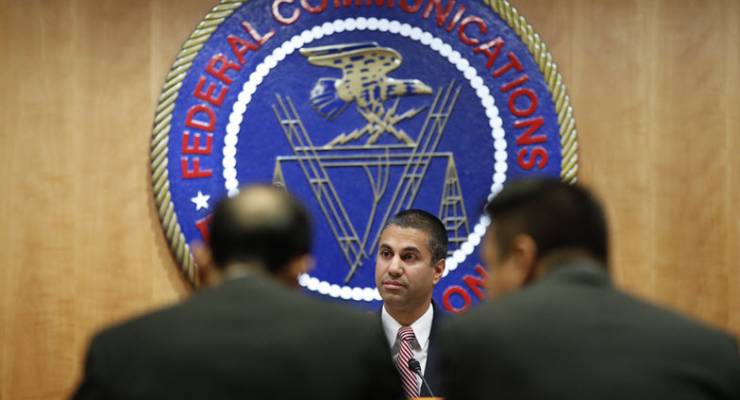
Like most decisions currently made in Washington, the decision to repeal net neutrality is a craven appeal to its favourite American citizen: corporations.
Net neutrality treats internet service providers as public utilities like gas or electricity and requires those ISPs to provide access to all digital content within their pricing. This means you pay to access everything on the internet at the same speed – no matter the location or whether you’re streaming movies or whatever endless gif loop is giving your life meaning.
Back in February 2015 the Obama Administration responded to public net neutrality campaigns to classify consumer broadband services as a public utility, which means it is regulated to ensure equal access for all Americans who pay for what they use, not where they access information.
Federal Communications Commission chairman Ajit Pai — previously general counsel for telecommunications carrier Verizon — has pushed to remove those protections. Many now place their incredibly fractured trust in a fractious US Congress to act — hopefully to restore regulation and protect equal access.
If it goes ahead, Americans can expect to face deliberately slow internet speeds based on how much they pay and where they go on the internet (particularly if its sponsored content or hosted by competitors). Under Pai’s and the FCC’s new direction, access to approved or disapproved content can also be modified, setting up a battle royale between two things Americans love as much as guns: freedom of speech and the ability to make money.
While this current fracas is presented as a fight about competition and monopolies, it is more than an economic issue restricted to one country whose impact is limited to financial access — what the US does on the net, the world follows. Net neutrality is an issue for us all.
Dismantling net neutrality dismantles our ability to access our rights and interests, especially given how many everyday interactions have been pushed online; whether it’s to lodge Medicare forms or pursue legal rights. The global growth of online education (a fast growing sector often reliant on video delivery) compounds the inequality of increasing education costs with unequal access to online access.
Imagine the impact this could have in times of protest like the Arab Spring where the internet has been a key tool in communication and organisation. While people are quick to decry internet shutdowns elsewhere, anti-net neutrality could achieve the same by fighting for access to resources while maintaining the power of the privileged.
Net neutrality prioritises people over profit and while this may be yet another example of America run amok, Australia’s yard is far from clean. We have no specified net neutrality as can be seen by ISP offering unmetered access to certain sites or curating their own unmetered space — moves that determine how much people can access online spaces or enjoy online services they’ve paid for.
We are past the point where online spaces are a small niche. Just under half the world’s population is online and that number is growing. There is no more distinction between “the real world” and the internet — these spaces are the same and access to a free and open internet is a human right. That means we must all demand that freedom from monopolies, economic exploitation and partisan politics.
The internet is where we meet people, where we can find jobs or education, express ourselves, freely associate and participate in the world. It is and must be treated as a open space where participation is not determined by your bank balance. Claims from ISPs that they won’t dismantle access under anti-net neutrality are about as convincing as a guy who promises to pull out: we’ll all end up getting fucked over.
Amy Gray is a Melbourne-based writer and activist. She is also a board member of Digital Rights Watch.








Democracy in the USA is officially dead.
Nah. This is barely an encore after Citizens United.
People over profit – what a quaint notion. What’s that worth on the Dow Jones?
How come nobody has mentioned the porn in the room?
This is not about abolishing it, yet, but monetising it by those not getting their cut of the single largest search term.
As you said, The US does and we will follow. Poor take-up of NBN might be reversed by an NBN guarantee that all participating carriers will be obliged to provide net neutrality to all customers using the NBN. If some carriers that don’t like that it is a good indication of what customers will be able to expect in future from mobile broadband.
The greatest threat to the Elite, since the elite became the elite, is the flow of information in seconds around the world, they have to find a way to slow it down or stop it. How simple is that to understand. Give up the Internet, now, and buy a bible, or koran, other wise your only reading fake news on the internet any way, he he har har weeeeeee.